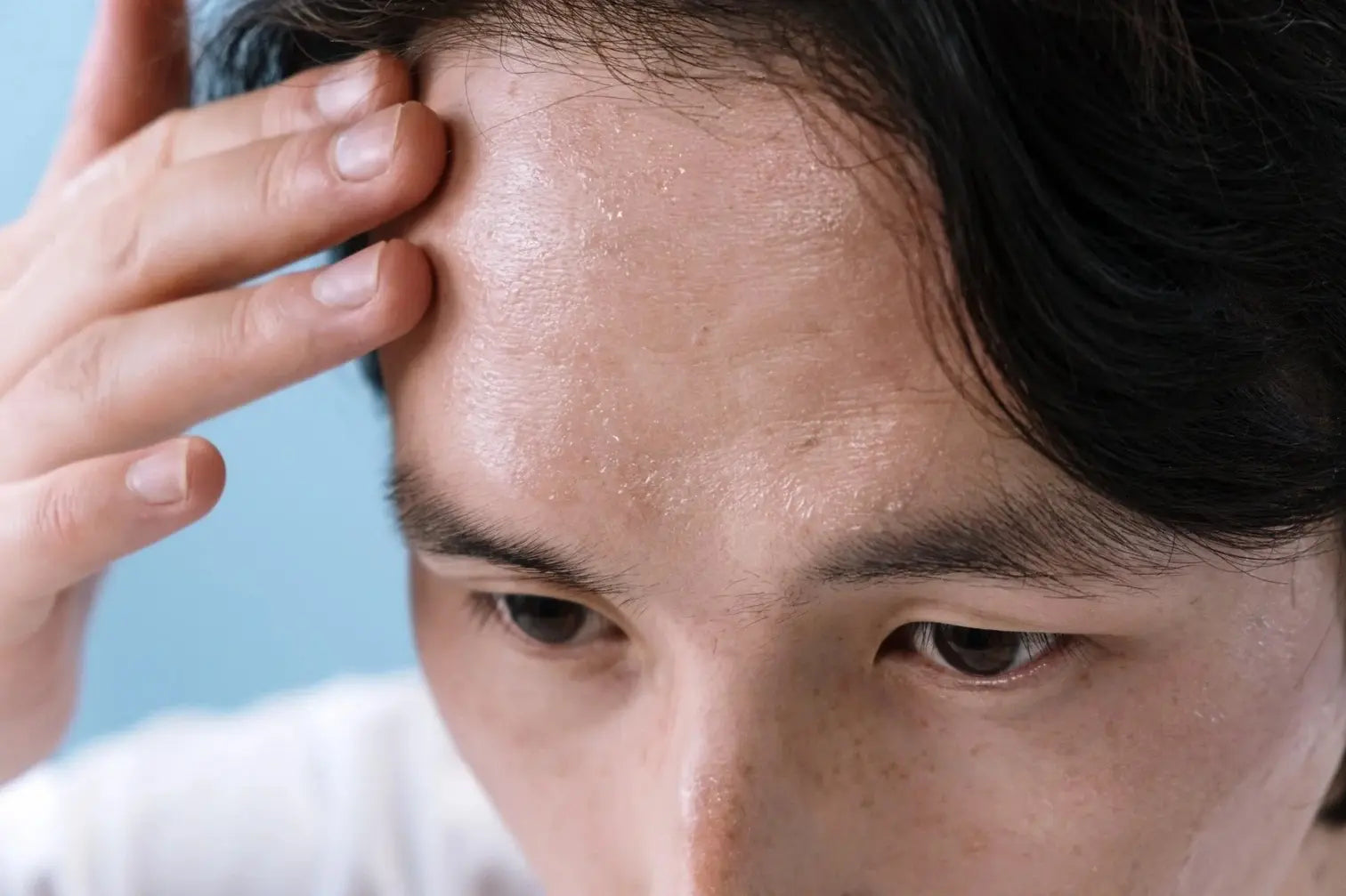Why is my face dry and flaky?
Why is my face dry and flaky?
What are the common causes of dry flaky facial skin?
1. Environment
2. Harsh soaps and products
3. Age
4. Lifestyle
- Dehydration: Dehydrated skin often exhibits the same symptoms as dry flaky skin. Aside from experiencing dryness, you'll know you're dehydrated when dry skin is accompanied by signs of dehydration, such as dark urine, thirst, and tiredness.
- Seborrheic dermatitis: One of the symptoms of seborrheic dermatitis is dryness but usually on the scalp.
What are the common causes of dry flaky facial skin?
1. Environment
2. Harsh soaps and products
3. Age
4. Lifestyle
- Dehydration: Dehydrated skin often exhibits the same symptoms as dry flaky skin. Aside from experiencing dryness, you'll know you're dehydrated when dry skin is accompanied by signs of dehydration, such as dark urine, thirst, and tiredness.
- Seborrheic dermatitis: One of the symptoms of seborrheic dermatitis is dryness but usually on the scalp.
How do I get rid of dry flaky skin on my face?
Moisturize and cleanse dry skin patches
Make informed decisions about skin care ingredients
- Niacinamde
- Squalane
- Jojoba oil
- Glycerin
- Hyaluronic acid
- Alcohol
- Alpha-hydroxy acid (AHA)
- Fragrance
- Retinoids (in high doses or too frequently)
Invest in good nutrition
Men, mind your facial hair
Plug in that humidifier!
Drink your water and maintain your mental health
Use topical products that enhance barrier function
How do I get rid of dry flaky skin on my face?
Moisturize and cleanse dry skin patches
Make informed decisions about skin care ingredients
- Niacinamde
- Squalane
- Jojoba oil
- Glycerin
- Hyaluronic acid
- Alcohol
- Alpha-hydroxy acid (AHA)
- Fragrance
- Retinoids (in high doses or too frequently)
Invest in good nutrition
Men, mind your facial hair
Plug in that humidifier!
Drink your water and maintain your mental health
Use topical products that enhance barrier function
What to avoid when your skin is dry and flaky
Avoid hot showers and high-heat environments
Fragrances
Use gentle but effective skin care products
What to avoid when your skin is dry and flaky
Avoid hot showers and high-heat environments
Fragrances
Use gentle but effective skin care products
- https://pubmed.ncbi.nlm.nih.gov/30998081/
- https://pubmed.ncbi.nlm.nih.gov/26449379/
- https://www.ncbi.nlm.nih.gov/books/NBK565884/
- https://pubmed.ncbi.nlm.nih.gov/21146730/
- https://pubmed.ncbi.nlm.nih.gov/26449379/
- https://pubmed.ncbi.nlm.nih.gov/31738016/
- https://pubmed.ncbi.nlm.nih.gov/23112909/
- https://pubmed.ncbi.nlm.nih.gov/30620080/
- Based on data from clinical studies and/or lab studies conducted on human skin samples, 3D skin models, and skin cells in the OneSkin lab. Explore more at oneskin.co/claims
- https://www.nature.com/articles/s41514-023-00109-1
- https://onlinelibrary.wiley.com/doi/epdf/10.1111/jocd.16242
- https://www.aad.org/public/everyday-care/skin-care-basics/dry/dermatologists-tips-relieve-dry-skin
- https://pubmed.ncbi.nlm.nih.gov/30998081/
- https://pubmed.ncbi.nlm.nih.gov/26449379/
- https://www.ncbi.nlm.nih.gov/books/NBK565884/
- https://pubmed.ncbi.nlm.nih.gov/21146730/
- https://pubmed.ncbi.nlm.nih.gov/26449379/
- https://pubmed.ncbi.nlm.nih.gov/31738016/
- https://pubmed.ncbi.nlm.nih.gov/23112909/
- https://pubmed.ncbi.nlm.nih.gov/30620080/
- Based on data from clinical studies and/or lab studies conducted on human skin samples, 3D skin models, and skin cells in the OneSkin lab. Explore more at oneskin.co/claims
- https://www.nature.com/articles/s41514-023-00109-1
- https://onlinelibrary.wiley.com/doi/epdf/10.1111/jocd.16242
- https://www.aad.org/public/everyday-care/skin-care-basics/dry/dermatologists-tips-relieve-dry-skin


